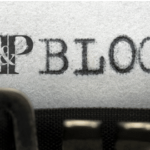In Part One, we discussed requirements for a spouse to be eligible to receive VA benefits. Today we are going to discuss the types of benefits that are available to a surviving spouse after the veteran’s death. Note that this area of VA law is very complex, so today’s post will focus on the basics, and to avoid confusion we will discuss only surviving spouses, although these benefits may be available for other qualified survivors as well.
The three main paths for a surviving spouse to be awarded VA benefits are accrued benefits, substitution, and death benefits. Accrued benefits and benefits received through substitution are different from death benefits in the sense that they are the benefits that were owed to the veteran before his or her death. Death benefits are paid to the surviving spouse based on the veteran’s death being service connected.
The important difference between accrued benefits and substitution is the veteran’s date of death. If the veteran died on or after October 10, 2008, the best route for the surviving spouse is to essentially step into the veteran’s shoes via the substitution process and continue to pursue the claim. If a veteran died before October 10, 2008, the only option the surviving spouse has is to file a claim for accrued benefits. We will discuss each of these in turn.
If a veteran died before October 10, 2008, and there was a pending claim for benefits, the claim died as well unless the surviving spouse filed a claim for accrued benefits. In order for a surviving spouse to be eligible for accrued benefits, the following requirements must be met: 1) the accrued benefits claimant must be the surviving spouse (or surviving child or surviving dependent parent in certain circumstances); 2) a claim for VA benefits must have been pending when the veteran died, the VA benefits must have been awarded but unpaid at death, or entitlement is shown from an existing rating decision; 3) the surviving spouse must have filed an accrued benefits claim within one year of death; and 4) evidence in the file of in VA’s possession at death must show that the veteran was entitled to the benefit. Number 4 is particularly important here, because what that means is that the surviving spouse is not able to submit any additional evidence after the veteran’s death. This makes accrued benefits claims much harder to win, which is why the substitution method is preferred and more beneficial to the surviving spouse.
If a veteran died on or after October 10, 2008, the surviving spouse is able to substitute into the claim and pursue the claim as if they were the veteran. This means that the surviving spouse is able to submit additional evidence. The same eligibility rules for accrued benefits apply to substitution, and the request to substitute must be made within one year of the veteran’s death. Remember that the claim must be pending at the time of the veteran’s death, meaning it either has not been adjudicated or the time period to appeal has not lapsed (except in the case of a BVA decision made before the veteran’s death – the surviving spouse is not able to appeal to the Court of Appeals for Veterans Claims). The surviving spouse can then pursue the claim as if they are the veteran and will be entitled to any retroactive benefits that are eventually awarded.
Finally, we will briefly discuss death benefits for surviving spouses, otherwise known as Death and Indemnity Compensation, or DIC. Again, the rules discussed in Part One regarding a qualifying surviving spouse apply. DIC benefits are available to a surviving spouse if the veteran’s death is service connected, or, in some cases, if the veteran had a service-connected disability for a certain time period before death. There is no time limit for filing a claim for DIC, but if the claim is filed within one year of the veteran’s death, the surviving spouse may be paid benefits back to the first day of the month following the month in which the veteran died. Note that a claim for DIC is also a claim for accrued benefits, and vice versa. There are two ways in which a surviving spouse can be eligible for DIC benefits. The first is if the veteran’s death resulted in whole or in major part from a service-connected medical condition. The second is if the veteran had a service-connected disability that was totally disabling for a certain period of time before the veteran’s death (usually 10 years). There is a lot to discuss in regards to DIC benefits, so we will go into more detail in Part Three.




